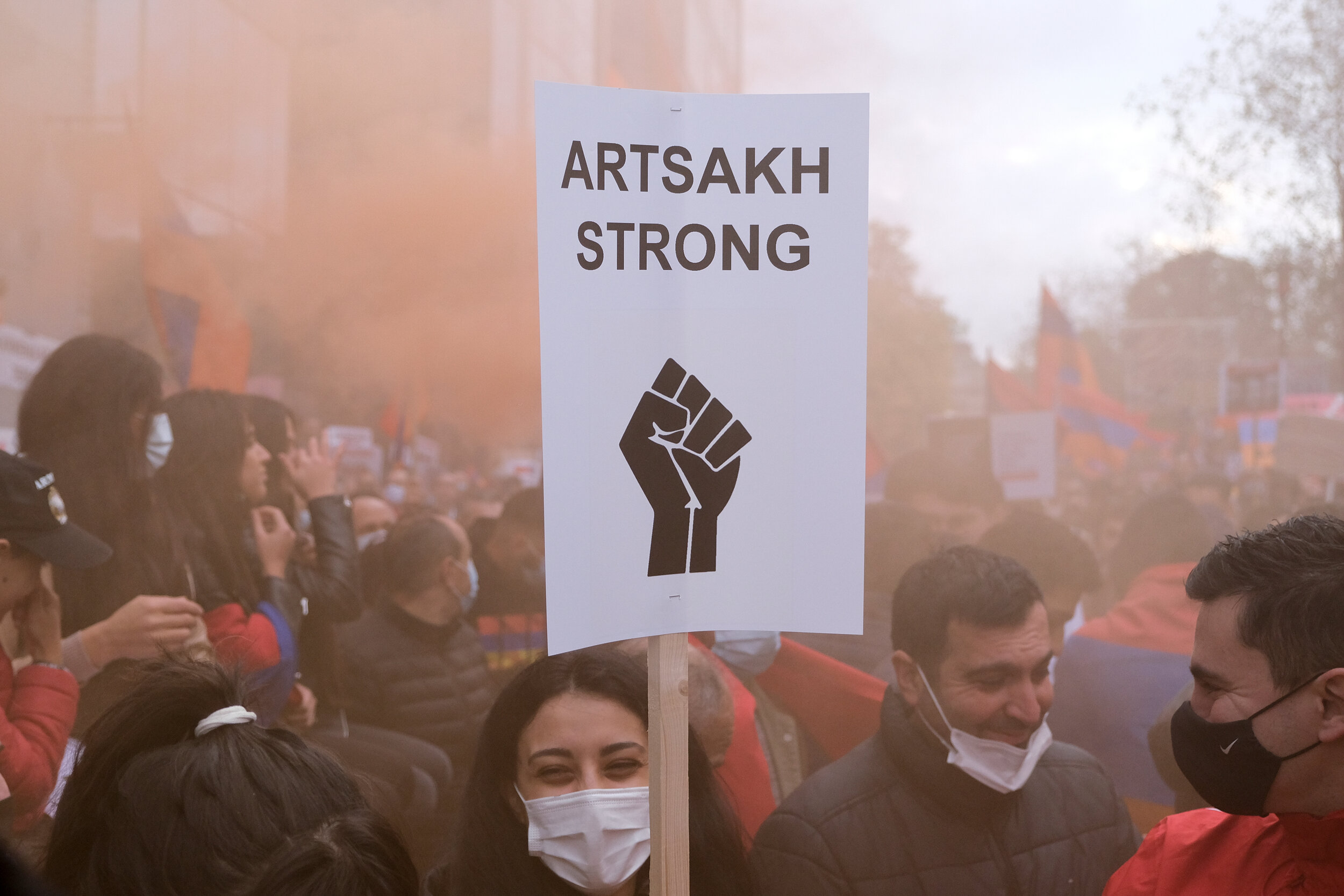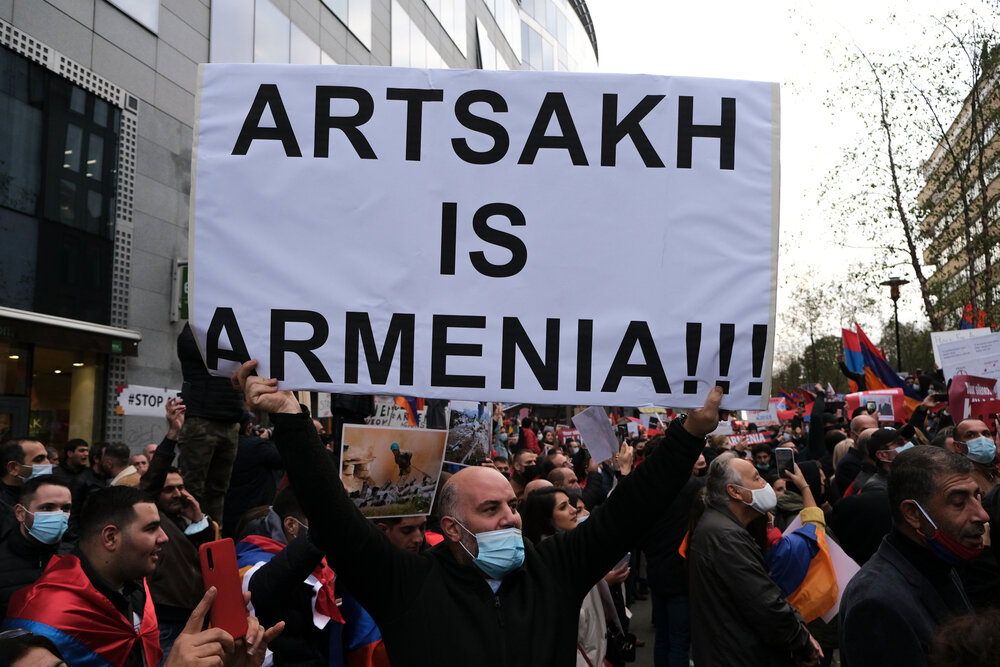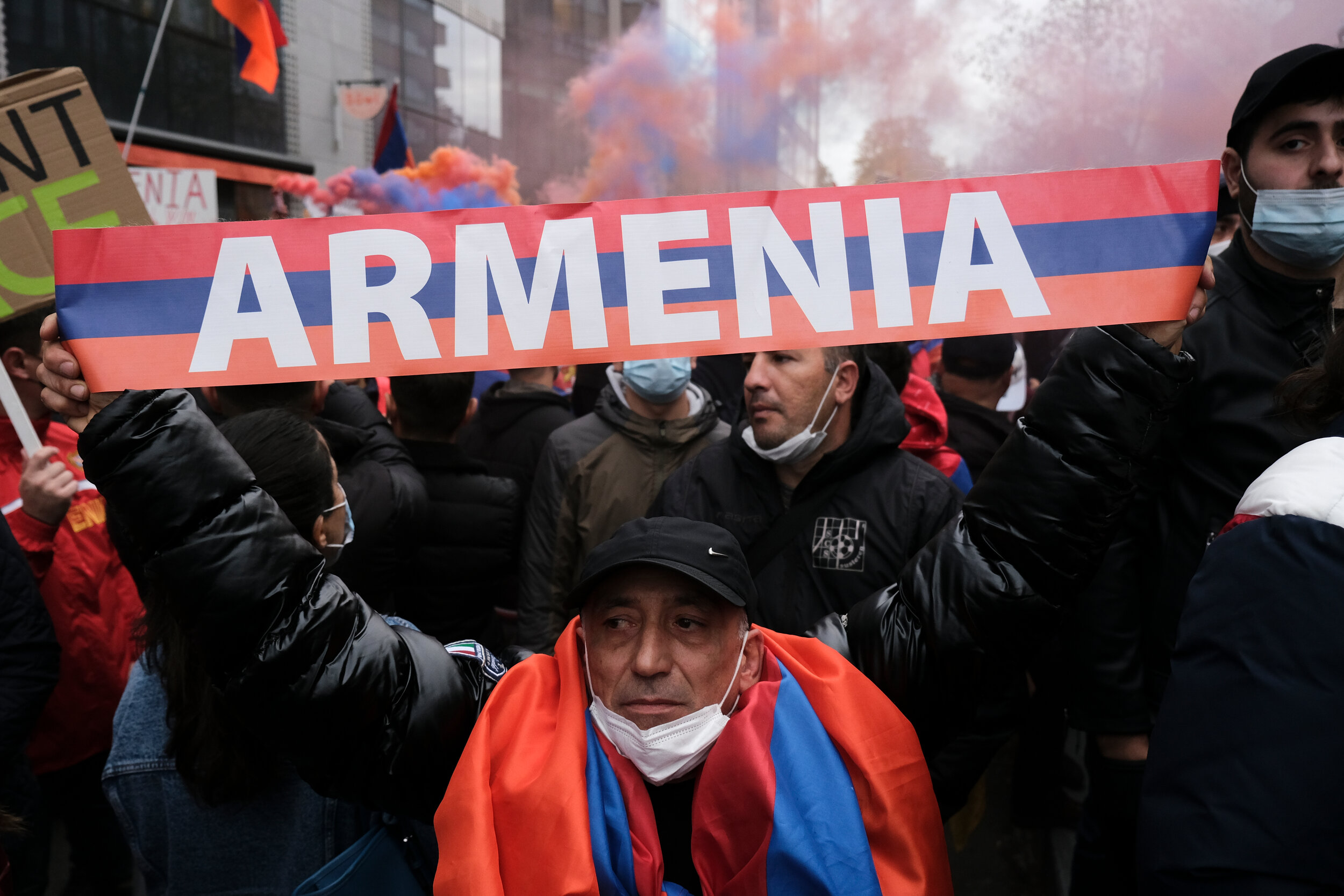I woke up to a war
Photo by Albert Khachatryan - Shutterstock.com
Dear You,
Look around; gaze at the blue sky above, glance at the bright faces of your loved ones. Life is wonderful, isn’t it? Now look at me and tell me, don’t we all have the right to be a part of this wonder? Don’t we all have the right to live?
Hello, I am Armenian. Have you ever heard of Armenia? (Don’t respond, I am going to talk about it anyways). Armenia is one of the oldest countries in the world. It’s the country that witnessed the rise and fall of powerful Babylon, Assyria and the Roman Empire, the first country that adopted Christianity. Our rich history and culture make Armenia home to people who love it so much, they believe that “The biggest honor one can ever have is to die defending their country”.
I was born and raised in Armenia, but now I attend college in a small Kentucky town in the United States. I call home every day ーto chat with my parents, check-in on my friends, ask my grandmother for family recipes. Texting them late at night, I always look forward to waking up and reading through their messages in the morning.
But on the sunny Sunday morning of September 27th, I got a different kind of a message. Last Sunday, I woke up to news “Azerbaijan attacked Nagorno Karabakh. Martial law has been declared. A war has started”. I woke up to a war. I read the headline again, and again, and again. I paused for a second--is this a nightmare? This nightmare has lasted for more than a week and I still haven’t woken up.
If you have read the news and thought, “But isn’t Nagorno Karabakh a part of Azerbaijan? Why is an Armenian talking about it as if she was attacked?”, I will have to stop you right here. Let’s dive more into the history of the region together. Nagorno Karabakh (Armenian name: Artsakh) has a rich history and a population of around 150,000 people ー 90% of them being Armenians. It’s not just a territory --it’s our home, our culture, our language, our people. The region’s history dates back three millennia to when Nagorno Karabakh was an official part of the Armenian Kingdoms. It later was overtaken by the Russian empire. After Armenia and Azerbaijan became members of the Soviet Union and the Bolshevik movement took place, Nagorno Karabakh, with an ethnically Armenian population and culture, became a part of the Soviet Socialist Republic of Azerbaijan. Yes, you read it right ー an ethnically Armenian land, with Armenian as their official language ーa part of Azerbaijan.
In 1988, Nagorno Karabakh voted to unify with Armenia, which was not supported by Azerbaijan and was followed by violent conflicts. In 1992, it turned into a full-scale war that lasted for two years. An official ceasefire was declared after ー Nagorno Karabakh claimed independence but was not internationally recognized, and gained de facto unification with Armenia. The ceasefire was broken constantly, and escalated into a four-day war in 2016 when Azerbaijan attacked Nagorno Karabakh. Long story short: Armenia now has de facto control over Nagorno Karabakh -- the official language is still Armenian, the army is Armenian, the president is Armenian, the people are Armenian. And now, after years of constantly broken ceasefire, Azerbaijan, along with Turkey, has started attacking Armenia.
“Wasn’t Turkey the country that committed a genocide towards Armenians?” you might ask. Yes, they were; are you following me with where this is going?
On Monday, I woke up again hoping to check the news and not see anything; hoping that the nightmare was over. First, I checked the Armenian news and, to my horror, read that the nightmare was not over. It was worse. I proceeded to look at what international news and social media platforms were saying. However, there, it seemed like the nightmare didn’t even happen at all. “Why am I not seeing anything here?” I wondered right before I came to realize: the world is silent. Again. As it was in 1915, when Turkey committed the Armenian genocide. Chains of questions occupied my mind. Why doesn’t the world care about us? Does the world care that Azerbaijan is using internationally banned bombs and missiles against civilians? Does the world care that the beautiful Artsakh is being bombed and destroyed? Does the world care that hundreds and thousands of innocent people are dying on both sides? I know for a fact that we do care about people. The president of Artsakh himself publicly announced that our war is against the government, not the people. We don’t want the deaths of innocent people; we just want to live. But do you care, World?
PHOTOS: 1) Image of a face-masked woman holding a power fist labelled “Artsakh Strong” by Alexandros Michailidis. 2-3) Thousands of members of the Armenian diaspora participate in a demonstration against the armed conflict over the Nagorno-Karabakh region. Brussels, Belgium. All by Alexandros Michailidis / Shutterstock.com
Almost no media coverage. People were encouraging peace when Armenians are shouting, “If Azerbaijan stops there’ll be peace, but if Armenia stops there’ll be genocide”. No, we are not overreacting. Erdogan, the president of Turkey, publicly proclaimed, “We will continue to fulfill this mission, which our grandfathers have carried out for centuries”. Yes, he was talking about the Armenian genocide. The grandchildren of people who committed genocide are attacking the grandchildren of people who survived the genocide… Let that sink in for a moment.
The world is silent, but Armenia is loud. It’s loud from the sound of bombs and the cries of mothers and babies. It’s loud from the will of Armenians to live and create, from Armenians singing and dancing on the streets --every song as a reminder of just how strong and resilient Armenians are as they attempt to get drafted to go and defend their country. The people who were not able to get drafted are on the streets, helping soldiers --helping Armenia in any way they can. It’s loud from our screams. We are trying to tell the world our story; but it’s not easy speaking up when you are a lonely voice and the world is deaf.
I was feeling worthless, as I was far away and couldn’t physically help my country. My home. Then I realized something: I can let the people around me know the truth. Don’t we all have the right to know the truth? We have reached a point when distinguishing between reality and misinformation became a challenge. Yet, as a citizen of the world, it’s my mission to advocate for the truth. Therefore, I started being active on social media and raising awareness. I tried to explain the history of Armenia to hundreds of people and it hurt me when some simply did not care. It is emotionally difficult for me to relive the trauma of my country fighting a war, and my friends and family being on the frontline. But I must speak up. I cannot afford to sit back; because if we Armenians do, we may never be able to get up again.
Now, the worst part of my day is reading through the list of fallen soldiers, while holding my breath, with an unconditional fear of discovering a familiar name. I am realizing that half of the soldiers are younger than me. They left love, dreams, family, and friends behind to go and defend our country--not because they were forced to, but because our love for our country is bigger than any war or greed.
Hello, I am Armenian. I woke up to war --a war that has changed my life --a war that I need to live through as I advocate for my country. Look around you and cherish the blue sky above your head. You have more power than you think: you have the power of gifting the blue sky to my nation as well by just caring.
Proud to be Armenian,
Anahit Grigoryan
To those who want to explore more:
- Collection of BBC articles about the war: https://www.bbc.com/news/topics/cvenzmgylg1t/armenia
- Armenian genocide - The Young Turks, Causes & Facts - HISTORY https://www.history.com/topics/world-war-i/armenian-genocide
- Why Nagorno-Karabakh? The history (both ancient and modern) that fuels the deadly conflict between Armenia and Azerbaijan https://meduza.io/en/feature/2020/10/01/why-nagorno-karabakh
- Armenia - Azerbaijan: What’s behind the Nagorno Karabakh conflict? https://www.bbc.com/news/world-europe-54324772
- In pictures: Fighting rages in Nagorno Karabakh conflict: https://www.bbc.com/news/world-europe-54418901
Anahit Grigoryan was born and raised in Yerevan, Armenia. She moved to Centre College (located in Danville, KY) in the fall of 2019 as a Biology major, and has been in the US throughout the pandemic and a war in her country. She is adores Armenia and Armenian culture, and is dedicated to raise awareness about an on-going war in Nagorno Karabakh.
(c) 2020 Anahit Grigoryan



